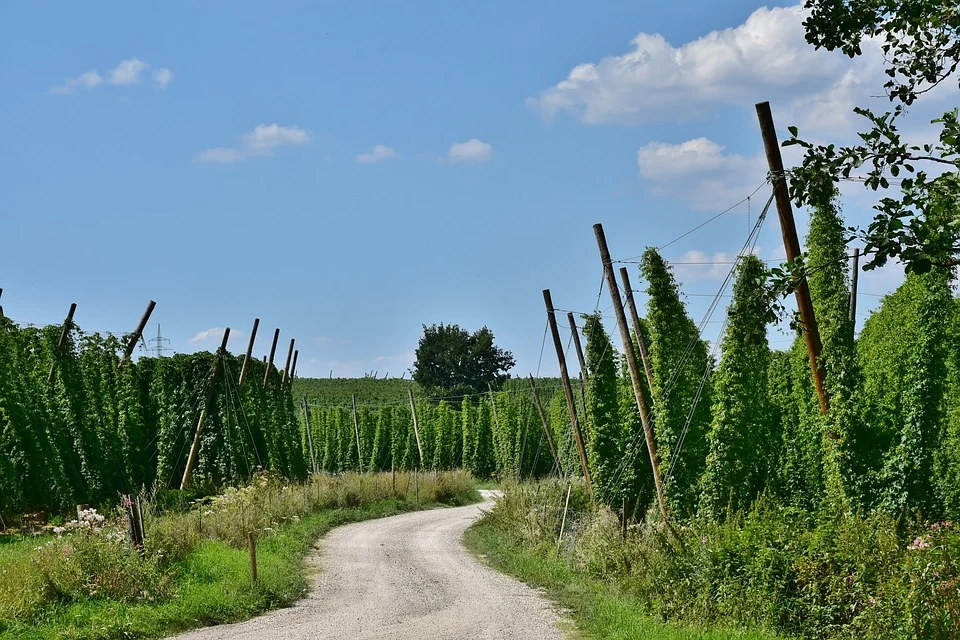Compound climate events (CEs) in which only one variable is extreme (e.g., either hot but no drought or extreme drought but not hot) and events in which both variables are extreme (e.g., drought and heat waves) may have different impacts on hop yields and alpha-bitter acid contents. Hop yards are exposed to an ensemble of CEs whose impacts are complex and difficult to assess (e.g. dry-cool, dry-hot, wet-cool, wet-hot, irrigation-induced cooling, yield losses-drought/heat-pests/diseases-market prices). Moreover, in the last 20 years, warmer soil caused a warmer atmosphere, which would in turn heat the ground and promote further increases in air temperature. This result is because surface heating of the atmosphere is greater than the cooling effect, which means that transfer of heat to the atmosphere is dominant in hop-growing regions.
Recently, our Czech scientists assessed the vulnerability of the European beer production to disruptions by extreme drought and heat events. This study includes the key hop-growing regions across the EU such as Hallertau (Germany); Úštěcko, Žatecko and Tršická (Czech Republic); Kent (Great Britain); Alsace (France); Lublin (Poland); Koroška (Slovenia); and León and Galicia (Spain). This is the first work of its kind. Based on the models, the researchers determined the joint probability distributions of daily precipitation and maximum temperature extremes and to provide risk assessments for concurrent drought–heat waves during the hop-growing season. The results show that longer and more severe drought and heat wave concurrences have increased more frequently than shorter concurrences. The degree of risk was estimated as being higher over the extensive hop-growing areas in the Czech Republic and Germany. A total of 22.4%, 12.5% and 7.2% of EU areas with conditions suitable for commercial hop production fell into the moderate, high and very high yield loss risk categories, respectively. Generally, integrating the damage between April and August indicated that more than 62.7% of total yield losses were due to high temperatures under dry conditions and that 21.5% of the yield losses were due to dry-cool conditions in the top hop-farming regions. The hotter European droughts caused decreases in noble aromatic hops by 29% to 68%. This indicates that the production and quality of hops are vulnerable to the duration and intensity of drought and heat wave concurrences due to the slower rate of adaptation of hops compared to field crops. Farmers have stabilized and increased the yields, but they have also spent more money on irrigation. This is because enhancing the yield and quality of hop cones means that spring/summer irrigation is essential for maintaining adequate soil moisture levels.
Author:
Doc. dr. Mgr. Vera Potopová
Vulnerability of hop-yields due to compound drought and heat events over European key-hop regions.
POTOPOVÁ, Vera, Ondřej LHOTKA, Martin MOŽNÝ and Marie MUSIOLKOVÁ. 2021. Vulnerability of hop-yields due to compound drought and heat events over European key-hop regions. International Journal of Climatology. 41 (S1): E2136–E2158. Available from: doi:10.1002/joc.6836
Not good news for beer drinkers!

